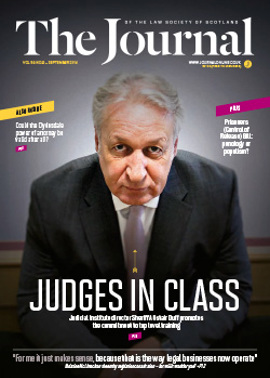Working for Uncle Sam

The purpose of this article is to advise you of an important change to UK tax law which affects trusts, and the steps that will have to be taken to comply with the US Foreign Account Tax Compliance Act (FATCA).
In summary
- FATCA potentially affects all trusts.
- Trustees are responsible for compliance.
- The deadline for complying is 31 December 2014.
- If trustees fail to comply, investment managers will more than likely withdraw from managing a trust’s portfolio and HMRC has the power to levy penalties.
- Lawyers and others advising trustees are going to have to understand FATCA and its implications for their clients.
- Letters of engagement for trust administration will have to be revised.
Becoming American
FATCA is part of a larger piece of legislation, the Hire Act 2010, which became law in the United States in 2010 to ensure that US citizens are fully disclosing their worldwide income to the Internal Revenue Service (IRS). It has worldwide effect because it makes any financial institution that pays money to a US taxpayer, anywhere in the world, subject to FATCA. FATCA also provides that financial institutions have to show they have systems in place to record and report any payments that have been made to US taxpayers (by them or any trusts for whom they act) to the IRS. If they cannot do so, withholding tax of 30% of all income earned in the USA will be levied.
Clearly there are problems with a foreign government enforcing its tax laws in the UK, and data protection laws would prevent a UK-based institution sharing data with a foreign government. To address this, the UK Government, together with the governments of most other countries, has entered into an intergovernmental agreement (“IGA”) to assist UK institutions affected by FATCA to comply with it. To achieve this, FATCA is now part of UK law (Finance Act 2013, s 222) and, as a consequence, most trusts are now caught by the FATCA rules even where they have no connections or beneficiaries in the USA. The IGA allows UK-based financial institutions to disclose the necessary information required under FATCA to HMRC, who can then report to the IRS: International Tax Compliance (USA) Regulations 2014 (SI 2014/1506). It seems likely that other countries will pass their own FATCA legislation and that there will then be a raft of other IGAs to be complied with.
FATCA does not apply to all trusts, but will do if the trust employs a “financial institution”, i.e. a stockbroker or fund manager, to manage its investments, whether on an advisory or discretionary basis. You may already have begun to receive correspondence about FATCA from some institutions.
Three-way choice
To comply with the reporting obligations, trustees will generally have three options – to become trustee documented, trust registered or owner documented.
Where a trust has a corporate trustee – typically a trustee company owned by a firm of solicitors – as one of its trustees, that trustee company can register with the IRS. The trust then becomes a “trustee documented trust”. The trust then has to do nothing else, as the trustee company is responsible for making all the necessary FATCA returns to HMRC. Registration is via an online form (Form 8957) on the IRS website, and the advice being given is that to make sure of timeous registration the latest date to register is 25 October 2014. Following registration, which requires a named person to be appointed as a “responsible officer” (although there is no such position detailed in the UK legislation), the trustee company is given a GIIN (global intermediary identification number). The GIIN then
covers all trusts for which it is a trustee.
Secondly, if the trust only has individual trustees, the trustees may decide to register the trust and follow the same registration process as a corporate trustee to become a trust registered financial institution. All that the trust’s investment advisers will then need is a note of the GIIN for the trustee company or the trust, and they and the trust will be FATCA compliant.
Thirdly, if the trust only has individual trustees, rather than registering with the IRS the trustees might want to become an “owner documented trust”. This seems to be the route a number of investment houses are offering to their qualifying trust clients. There is a long form to complete, and the trustees undertake to advise the institution of any change to the details of the trustees or beneficiaries within 30 days of the change happening. The institution then takes on the responsibility for FATCA returns, although the trustees remain responsible for the accuracy of the information provided. If the trust makes any payments to a US citizen (which is defined in the FATCA rules and is more far-reaching than one might think), the trust’s status changes and it cannot continue to be owner documented.
Whichever registration route is followed, it is clear that accurate data recording and robust systems will have to be put in place to record and retain data for at least six years after the status of a trust and details of its beneficiaries have been established. Up-to-date identification documents have to be retained at all times, so any system will have to contain reminders to ask for replacements. As part of the review of trusts, firms might decide that trustees should have the responsibility for record keeping. That will have to be covered in the letter of engagement with the trustees, so it is quite clear who is responsible for FATCA compliance. Failure to comply might lead to penalties being assessed by HMRC. The penalties range from £300 to £3,000, depending on the severity of the breach of the rules, and are payable by the trustees, not the trust.
HMRC has issued guidance notes, but they are not entirely clear and sometimes seem at odds with the regulations and the IGA. They can be found at www.hmrc.gov.uk/drafts/uk-us-fatca-guidance-notes.pdf
All trusts must be FATCA compliant by 31 December 2014. This means they must have been assessed in terms of the legislation and all necessary actions taken by then.
In this issue
- Keep the job going?
- Asbestos and the state of knowledge
- Damned lies and bogus statistics
- Sorry seems to be the hardest word
- With a fair RWIND
- Planning land reform: the land of Scotland and the common good
- Reading for pleasure
- Opinion: Joanne Gosney
- Book reviews
- Profile
- President's column
- Roadshows roll out
- People on the move
- Outcomes, or own goals?
- Power and authority
- Licensed to reoffend?
- Raising the bar for the bench
- Title insurance – under the bonnet
- Working for Uncle Sam
- Family failings
- Shopping with protection
- Private sector progress at public sector expense?
- Rent review: the storm before the calm
- Doping: raising the stakes
- New financial services arm for ILG
- Under starter's orders
- Childcare: the benefits
- Law reform roundup
- Follow the leader
- Five years from when?
- Ask Ash
- Take the money?
- From the Brussels office
- Beware the bank calls
- Mentoring – why?






